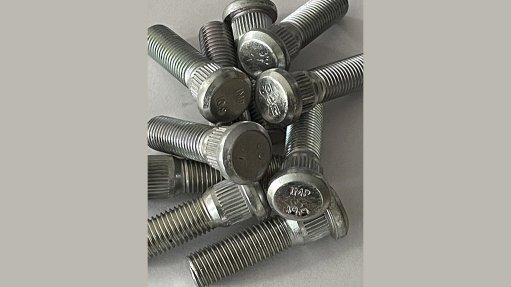It’s time to put South Africa Inc into business rescue
To complicate something simply means to make something more difficult to deal with or understand. Why not simplify it? Take the South African economy and its performance – it is no more difficult to understand than a business. Yet, for some inexplicable reason, it is deemed to be too complicated to understand unless economists explain its intricacies. This is perplexing on so many levels.
The truth is that one should be able to understand the South African economy and its performance without the intervention of an economist. (I’m an economist, by the way.)
South Africa can be regarded as a business, South Africa Incorporated, or South Africa Inc, for short. It has assets and liabilities. The assets include property, plant, equipment, vehicles, furniture, inventory, stock, investments, patents, cash and cash equivalents. The liabilities include accounts payable (bills), interest payable, overdrafts, accrued expenses and long- and short-term loans. A business has owners, or shareholders, and also has divisions.
South Africa Inc has a range of business divisions, ranging from airlines to electricity, road, rail, port, pipeline, telecommunications and postal businesses, to name a few. In total, there are 21 ‘major public entities’, which are better known as State-owned enterprises (SOEs).
The major SOEs are South African Airways, South African Express, Airports Company South Africa, Air Traffic & Navigation Services, Eskom, the Central Energy Fund, the South African Nuclear Energy Corporation, Telkom, Transnet, the Trans-Caledon Tunnel Authority, the South African Broadcasting Corporation, Broadband Infrastructure Company, Alexkor, Armaments Corporation of South Africa, Denel, the Development Bank of Southern Africa, the Independent Development Trust, the Industrial Development Corporation, the Land Bank, South African Forestry Company and the South African Post Office.
The December 6 instalment of this column was headlined ‘SOEs the worst they have ever been’, which summarised the Auditor-General’s latest report.
Anyone who is keen to familiarise themselves with the financial position of a business can do so by reading the business’s credit report, which provides objective, unbiased and timely insight. Similarly, insight into South Africa Inc can be obtained from the Big Three credit ratings agencies: Standard & Poor’s, Moody’s and Fitch.
All three rank South Africa Inc close to ‘junk’. Fitch revised its long-term foreign-currency issuer default rating from ‘stable’ to ‘negative’, owing to an expected increase in South Africa’s debt-to-gross-domestic-product ratio, which will make it more difficult for government to stabilise the country’s debt. Should Moody’s downgrade South Africa Inc, government bonds would fall out of the Citigroup World Government Bond Index, which tracks investment-grade debt globally. This might force fund managers with investment-grade mandates to offload South Africa Inc’s debt. Why Moody’s has not downgraded South Africa Inc is astounding and questionable. Presumably, the reluctance is due to South Africa Inc being what would be considered a family-owned business and the international organisation having a sustained and misplaced fondness for its founder.
According to a 2012 Harvard Business School study, some 70% of family-owned businesses fail or are sold before the second generation gets a chance to take over, owing to a family feud among members, emotions running wild or the family being ill-equipped to handle complex business issues.
It is evident that it is time to put South Africa Inc into business rescue.
Article Enquiry
Email Article
Save Article
Feedback
To advertise email advertising@creamermedia.co.za or click here
Press Office
Announcements
What's On
Subscribe to improve your user experience...
Option 1 (equivalent of R125 a month):
Receive a weekly copy of Creamer Media's Engineering News & Mining Weekly magazine
(print copy for those in South Africa and e-magazine for those outside of South Africa)
Receive daily email newsletters
Access to full search results
Access archive of magazine back copies
Access to Projects in Progress
Access to ONE Research Report of your choice in PDF format
Option 2 (equivalent of R375 a month):
All benefits from Option 1
PLUS
Access to Creamer Media's Research Channel Africa for ALL Research Reports, in PDF format, on various industrial and mining sectors
including Electricity; Water; Energy Transition; Hydrogen; Roads, Rail and Ports; Coal; Gold; Platinum; Battery Metals; etc.
Already a subscriber?
Forgotten your password?
Receive weekly copy of Creamer Media's Engineering News & Mining Weekly magazine (print copy for those in South Africa and e-magazine for those outside of South Africa)
➕
Recieve daily email newsletters
➕
Access to full search results
➕
Access archive of magazine back copies
➕
Access to Projects in Progress
➕
Access to ONE Research Report of your choice in PDF format
RESEARCH CHANNEL AFRICA
R4500 (equivalent of R375 a month)
SUBSCRIBEAll benefits from Option 1
➕
Access to Creamer Media's Research Channel Africa for ALL Research Reports on various industrial and mining sectors, in PDF format, including on:
Electricity
➕
Water
➕
Energy Transition
➕
Hydrogen
➕
Roads, Rail and Ports
➕
Coal
➕
Gold
➕
Platinum
➕
Battery Metals
➕
etc.
Receive all benefits from Option 1 or Option 2 delivered to numerous people at your company
➕
Multiple User names and Passwords for simultaneous log-ins
➕
Intranet integration access to all in your organisation

















